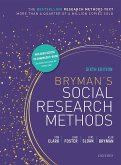In recent years, Social Epistemology has emerged as a captivating and dynamic field of study, revolutionizing our understanding of knowledge and its acquisition within social contexts. As societies continue to become increasingly interconnected through technology and communication, the significance of social factors in shaping beliefs, justifications, and disseminating information has become more evident.Social Epistemology focuses on how collective agents, such as communities, institutions, and cultures, generate, transmit, and validate knowledge. The field delves into how social interactions, norms, trust, and shared beliefs impact individual cognition and contribute to forming communal knowledge structures.The ascent of Social Epistemology promises to bring many benefits to diverse disciplines. By illuminating the interplay between individual epistemic agents and social systems, this field enriches our comprehension of knowledge production, scientific progress, and the dynamics of belief formation. It also offers insights into misinformation, knowledge polarization, and epistemic injustices plaguing modern societies.As researchers delve deeper into Social Epistemology, the prospects of its ascent seem promising. By fostering interdisciplinary collaborations, incorporating insights from cognitive science, sociology, and philosophy, and utilizing advanced analytical tools, Social Epistemology holds the potential to reshape the way we perceive knowledge, truth, and rationality in the interconnected world of tomorrow. Darby Roy's exploration of this burgeoning domain encourages a thoughtful examination of the complex interplay between individuals and societies, enriching our epistemic landscape for years to come.
Hinweis: Dieser Artikel kann nur an eine deutsche Lieferadresse ausgeliefert werden.
Hinweis: Dieser Artikel kann nur an eine deutsche Lieferadresse ausgeliefert werden.








